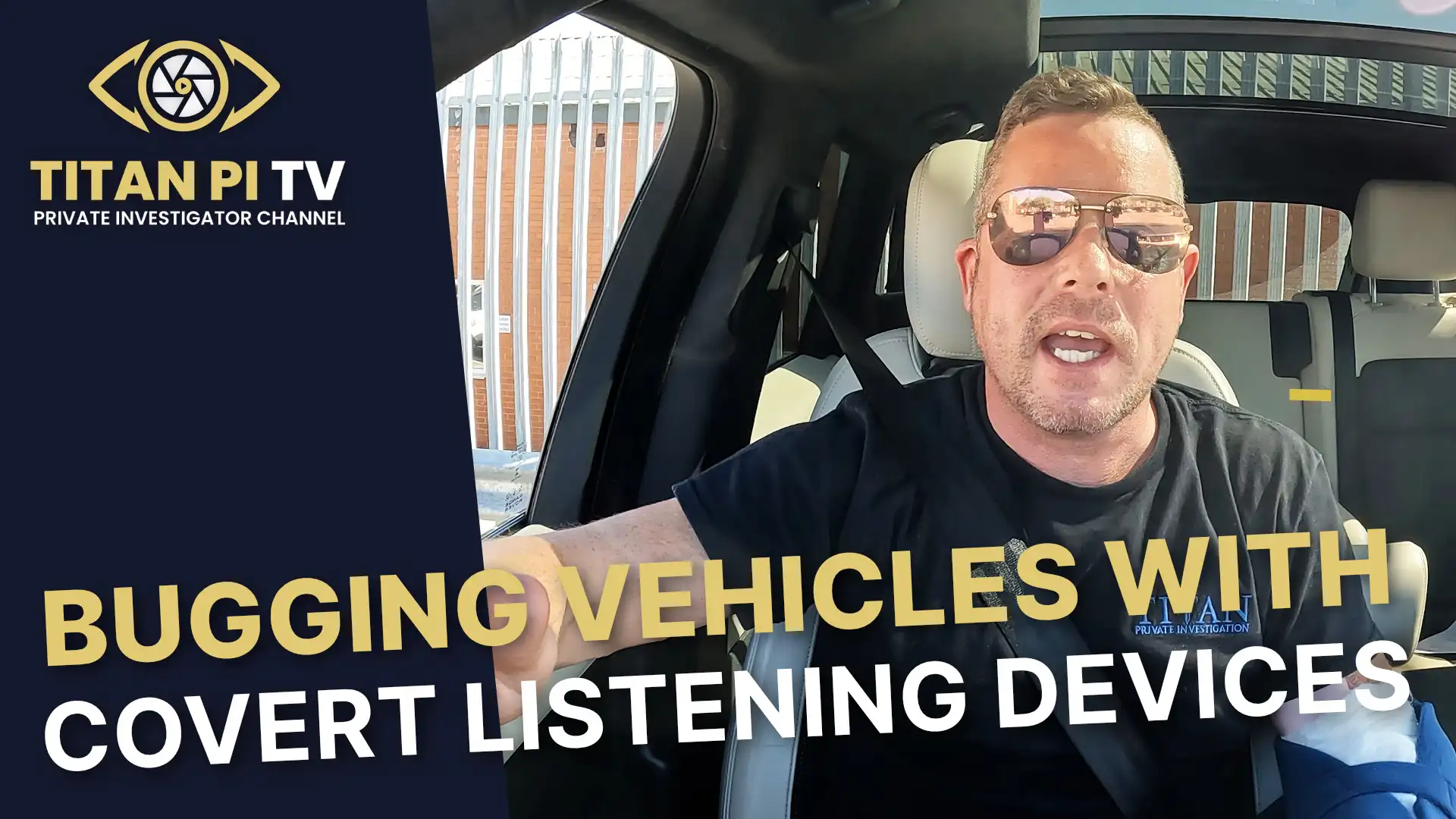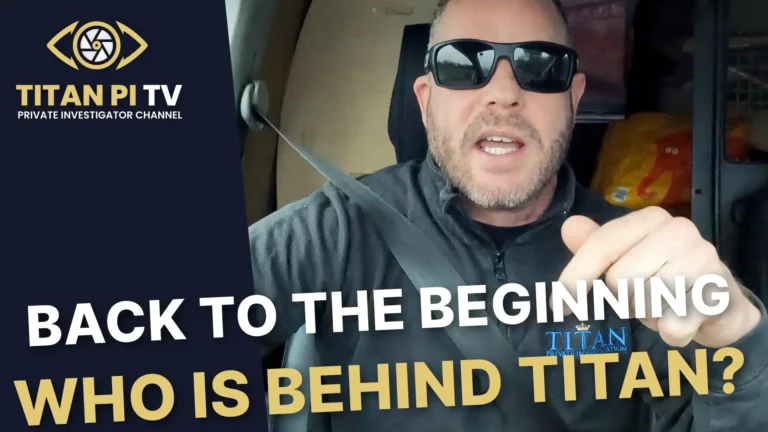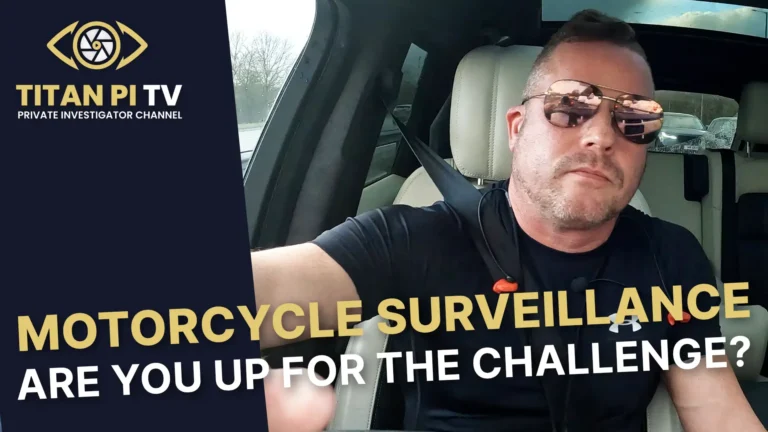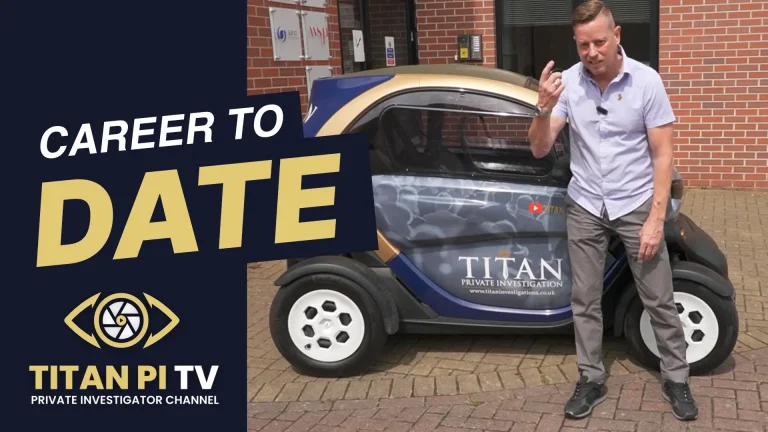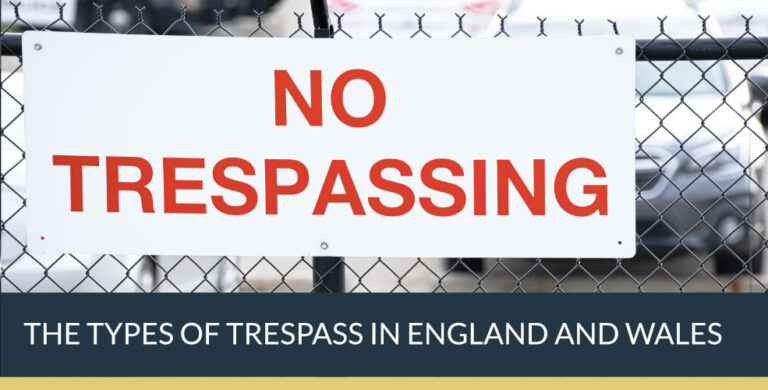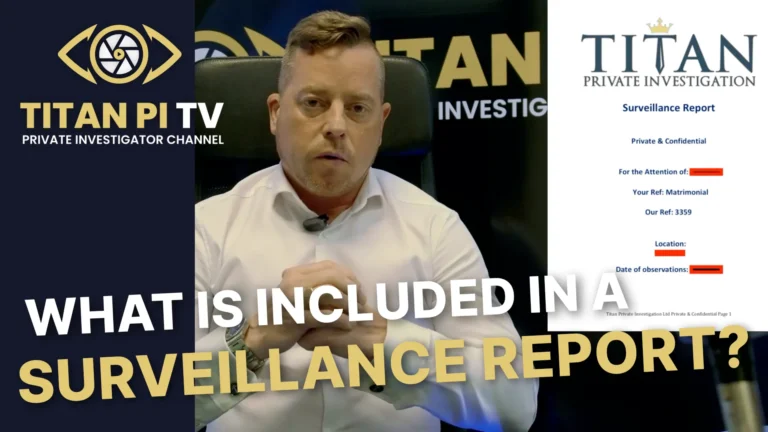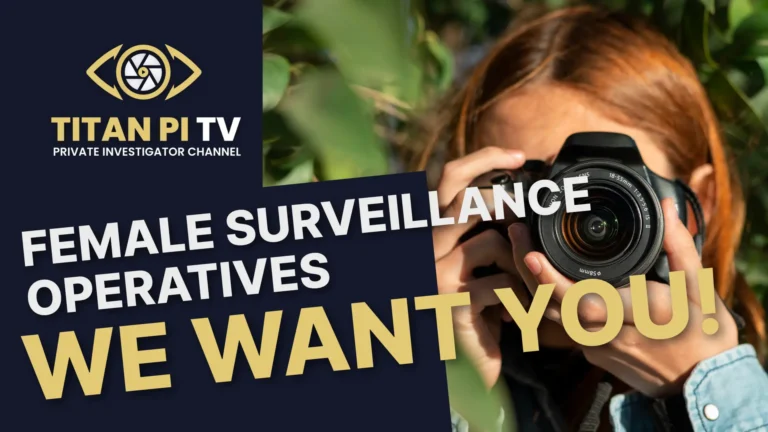Bugging Vehicles with Covert Listening Devices
In the latest episode of Titan PI TV, Simon Henson, Managing Director of Titan Private Investigation Limited, takes viewers deep into the clandestine world of vehicle surveillance, focusing on the use of covert listening devices. Simon’s discussion is anything but light, delving into the legal, technical, and ethical complexities of bugging vehicles—a subject that is as fascinating as it is fraught with controversy.
The Setting: Titan’s Live Operations in Derby
Broadcast from Titan’s headquarters in Derby, the episode opens with Henson’s warm welcome to both regular viewers and podcast listeners. Titan PI TV, now approaching the milestone of 2,000 subscribers, has become a trusted source for those interested in the real-life workings of a professional investigation agency. Henson, with his characteristic blend of professionalism and approachability, sets the stage for a discussion that promises to be both informative and thought-provoking.
The Legal Landscape: Privacy, Consent, and Legitimate Interest
Before delving into the technicalities, Henson is unequivocal about the legalities surrounding listening devices in vehicles. In the United Kingdom, placing a listening device in a vehicle without the explicit consent of the owner or legal occupant is, in most cases, illegal. Such actions are considered a breach of privacy, as individuals have a reasonable expectation of privacy within their vehicles. This legal framework is not merely a formality; it is a cornerstone of ethical investigative practice.
At Titan, every operation involving surveillance technology is subject to a rigorous Legitimate Interest Assessment (LIA). This process ensures that any action taken is not only legal but also justified by a clear and legitimate purpose. The agency’s case management system meticulously tracks every piece of information gathered, from its collection to its eventual destruction, safeguarding both client confidentiality and compliance with data protection laws.
Types of Listening Devices: From Simple Recorders to Cloud-Based Systems
Henson outlines the three primary types of listening devices used in vehicle surveillance, each with its own advantages, limitations, and appropriate use cases.
1. Noise-Activated Recorders:
The most commonly used device at Titan, this type is placed discreetly within the vehicle and is activated by sound. It records only when it detects noise—such as the engine starting or conversations within the car. The device must be physically retrieved to access the audio files, which ensures that only relevant data is captured and reviewed. This method is particularly effective for short-term investigations where specific conversations are of interest.
2. Dial-In Devices:
Functioning much like a mobile phone, these devices allow an investigator to dial in and listen to live conversations within the vehicle. However, they do not record any audio, meaning that the investigator must know when the target is likely to be in the car and talking. While this method offers real-time intelligence, it lacks the ability to review past conversations, limiting its usefulness in some scenarios.
3. Cloud-Based Devices:
The most advanced and expensive option, cloud-based devices automatically upload recorded audio files to a secure cloud server. Investigators can then access these files remotely via an app, eliminating the need to physically retrieve the device. This technology allows for near real-time monitoring and is ideal for long-term, high-stakes investigations. However, its cost and complexity mean it is used sparingly.
The Process: From Assessment to Installation
Every case at Titan begins with a thorough assessment of legality and necessity. If a client requests the installation of a listening device, the agency first determines whether there is a legal right or explicit permission to do so. In matrimonial investigations, for example, the client often has access to the vehicle and can grant permission for the device to be installed. Even then, Titan conducts an LIA to confirm that the action is both legal and proportionate, always considering whether a less intrusive method could achieve the same objective.
Once approved, the installation process varies depending on the type of device and the duration of surveillance required. For a professional, long-term covert fit, the vehicle may need to be out of use for at least a day. Panels and headlining are carefully removed to conceal the device, which is often hardwired to the car’s battery for continuous power. This method is more expensive and typically reserved for complex or high-value cases.
For most private investigations, however, a temporary device is installed for a period of days or weeks. These devices are usually hidden under the driver’s seat, within the steering column, or in an unused cubby hole—always secured with strong tape to prevent dislodgement. The goal is to capture relevant conversations without alerting the vehicle’s regular users.
Applications: Matrimonial and Corporate Investigations
While the majority of listening device cases at Titan involve private clients—most commonly in the context of matrimonial investigations—the technology is also used in corporate settings. In such cases, the objective is often to gather evidence of misconduct or to protect company assets. However, the legal requirements are even more stringent. For company vehicles, there must be a clear policy in place informing users that their conversations may be monitored, mirroring the requirements for vehicle tracking devices.
Henson emphasises that Titan never oversteps the mark. The agency’s approach is always guided by a clear objective, and the use of listening devices is considered only when no other method will suffice. This commitment to ethical practice is a hallmark of Titan’s reputation in the industry.
Detecting Listening Devices: What Should You Do?
The episode concludes with practical advice for viewers who suspect their vehicle may be bugged. Henson recommends starting with a thorough fingertip search of the vehicle, focusing on areas around the driver’s seat, under seats, in glove boxes, door pockets, and any small compartments. However, he cautions that professionally installed devices are often so well concealed that they cannot be found without dismantling parts of the vehicle.
For those who remain concerned, Henson advises contacting a reputable private investigation agency that specialises in professional bug sweeps. Such agencies use sophisticated equipment—often worth tens of thousands of pounds—to detect even the most advanced devices. It is essential to choose a company with the right expertise and equipment, rather than relying on someone with limited experience or inadequate tools.
The Bigger Picture: Privacy, Technology, and Trust
The use of covert listening devices in vehicles sits at the intersection of technology, privacy, and trust. As surveillance technology becomes more advanced and accessible, the potential for misuse increases. Titan’s approach, as outlined by Henson, is a model of responsible practice—balancing the needs of clients with the rights of individuals to privacy and due process.
For viewers and listeners, the episode serves as both a window into the realities of modern private investigation and a reminder of the importance of legal and ethical boundaries. Whether you are a private individual concerned about your privacy, a business owner seeking to protect your interests, or simply a curious observer, the insights offered by Titan PI TV are invaluable.
Bugging Vehicles: Final Thoughts
Simon Henson thanks the growing community of Titan PI TV subscribers and encourages viewers to subscribe to the channel to stay informed about future episodes. With over two years of content and a rapidly expanding audience, Titan PI TV continues to set the standard for transparency and professionalism in the world of private investigation. For those interested in learning more, the Titan PI TV podcast is available for download on all major platforms, offering in-depth discussions on a wide range of investigative topics.
What’s Next on Titan PI TV?
Thank you for reading, watching or listening to this week’s blog post on Titan PI TV. If you found this information helpful, please give us a thumbs up and subscribe to our channel. We’re aiming to reach 2,000 subscribers in the next few weeks, and we currently have 1,876 channel subscribers as of 2nd May 2025.
Stay tuned for more insights into the world of private investigations. Until next time, stay safe and keep learning!
Titan PI TV: Uncovering the Truth, One Investigation at a Time.

